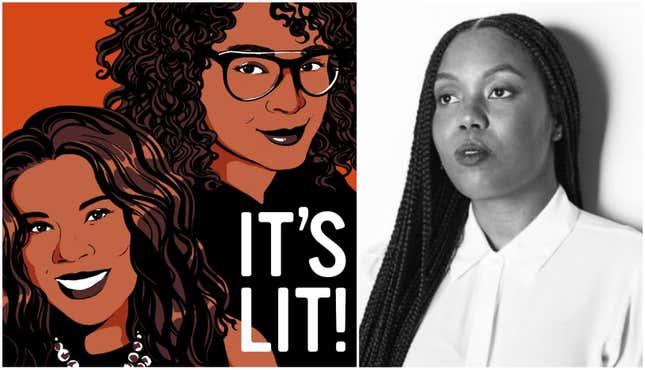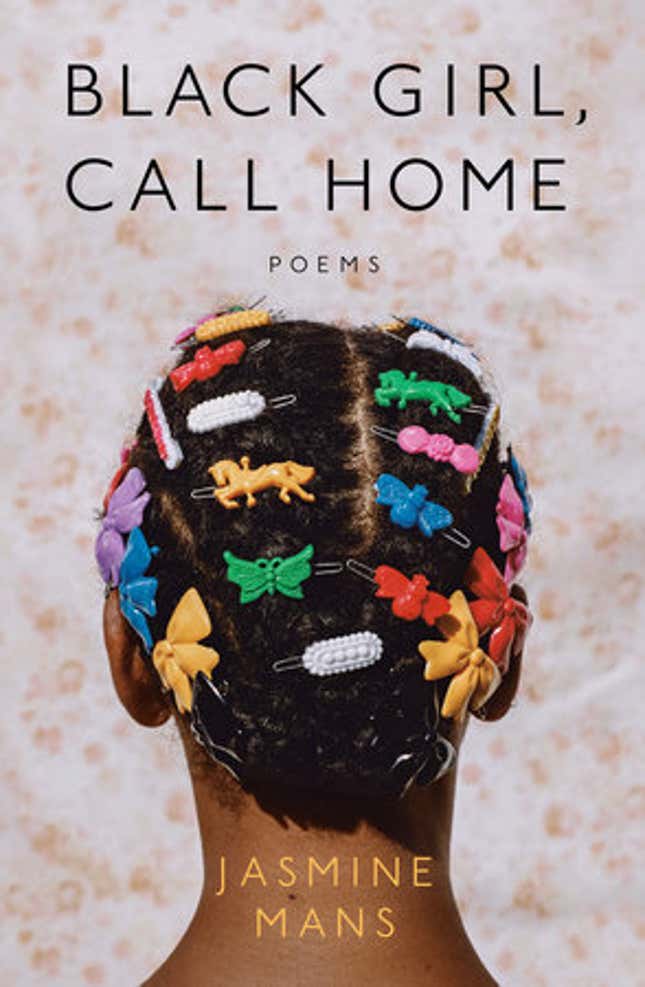
Jasmine Mans may be best known for her viral poem, Footnotes for Kanye, but her latest volume of poetry, Black Girl, Call Home, is more than pop cultural phenomenon; “It is a conjuring. It is a request. It is a calling. It’s a poem,” Mans tells us on this week’s episode of The Root Presents: It’s Lit!
An invocation indeed; Mans’ collection of poignant, deeply relatable poems are lyrical snapshots of Black life—its unique beauty and vulnerabilities alike. As the poet notes, she wanted to create something for her community—a community that begins in her native Newark, N.J. “I wanted them to feel as seen as I felt when I heard ‘Every City, Every Ghetto’ by Lauryn Hill,” she says, adding, “where I was like, she is talking to me. No, that’s not for any girl. That’s for Newark girls.”
Black Girl, Call Home isn’t exclusively for Black girls, but its intimacy reflects our own innate knowing—so, too does its cadence reflect Mans deep love of music.

“I was always a fan of rhyme and truly like I was a fan of emotional text,” she says, noting that she’d originally aspired to be a singer and a rapper (both of which are still in her repertoire). “I always wanted to use my voice on stage. And I think, like throughout my childhood, I was like finding the best way to use my voice. And then I just kind of shifted into poetry and I enjoyed rhyming and enjoyed storytelling...And then there is like a space where activism and art collide, right? And you’re not just talking about poems; you’re talking about Black poetry and the Black experience,” she continued. “And so, I was stumbling upon different spaces that allowed me to not just explore rhyme and my own voice, but also how to narrate a Black experience; how to narrate my own experience. And so I think poetry became my medium because I love dramatic storytelling and I loved voice. And I just needed to figure out, like, where mine could exist in this world.”
Finding a place to exist in the world is germane to the Black experience—the myriad nuances of that struggle are at the heart of Mans’ poems, though she admits that wasn’t her original intent.
“I think that all throughout the book, you see the fragility of the Black body. And that is what I am trying to show. And I didn’t know that that was a part of my intention when I started,” she explains. “As I started building upon this narrative of Black Girl, Call Home and home and body and mother-daughter, like you realize that that fragility becomes a big thing and the fragility of the body around, like the poems around trans folks and around the children who are left at the border...And so, I think the constant theme is the body and the fragility of the body around these dynamics of love, family, assault...And we’re talking about fragility—not only mine, but the fragility of women that existed before me,” she added. “And so I wanted to show people that I was trying to be a student of my own body. And that was a big part of this for me.”
Hear more from the deeply intuitive Jasmine Mans in Episode 33 of The Root Presents: It’s Lit!: Jasmine Mans Calls Us Closer With “Black Girl, Call Home,” available on Apple, Spotify, Stitcher, iHeart Radio, Google Podcasts, Amazon, NPR One, TuneIn, and Radio Public. A transcript is also available for this week’s episode.

